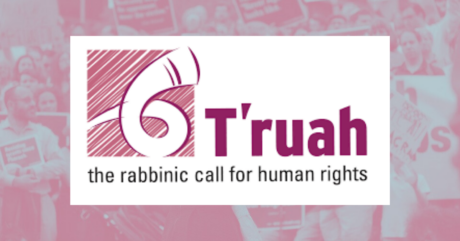As Jews, we know that immigration policy can be a matter of life or death.
NEW YORK – Earlier this month the Biden Administration called for the end of Title 42, a dangerous, immoral Trump-era policy that for two years was used to block migrants from seeking asylum at the U.S. southern border. T’ruah, a rabbinic human rights organization that represents over 2,300 rabbis and cantors and their communities in North America, welcomed the announcement and cautioned against pending legislation that would make the policy permanent.
Rabbi Jill Jacobs, CEO of T’ruah, issued the following statement condemning pending legislation to reinstate the policy:
“Under the guise of protecting public health, Title 42 has put all people seeking asylum at our southern border at risk, including Ukrainians, Afghans, Venezuelans, Cubans, and others. This xenophobic policy fuels violence and chaos in our southern border region. From the very first day of Title 42’s implementation in 2020, public health experts have said it was not a useful tool to prevent the spread of COVID-19. Now that testing, treatments, and vaccines are widely available, it is even more clear that it is time for this policy to end.
“As Jews, we know that immigration policy can be a matter of life or death. Many of our own families fled danger to find refuge in the United States, and many of our family members died after this country’s borders were closed to them.
“T’ruah calls on Members of Congress to oppose any efforts that will block asylum access at the border, be they standalone legislation, amendments to the COVID-19 relief bill, or any other actions. Specifically, we oppose the Sinema-Lankford bill in the Senate, in addition to the Golden-Gonzalez bill in the House, and the dangerous values they elevate.
“Only with a just, transparent, and timely system for refugees to gain legal entry into the United States will we be truly living out both our Jewish and American ideals.”
T’ruah: The Rabbinic Call for Human Rights mobilizes a network of more than 2,300 rabbis and cantors from all streams of Judaism that, together with the Jewish community, act on the Jewish imperative to respect and advance the human rights of all people. Grounded in Torah and our Jewish historical experience and guided by the Universal Declaration of Human Rights, we call upon Jews to assert Jewish values by raising our voices and taking concrete steps to protect and expand human rights in North America, Israel, and the occupied Palestinian territories.

